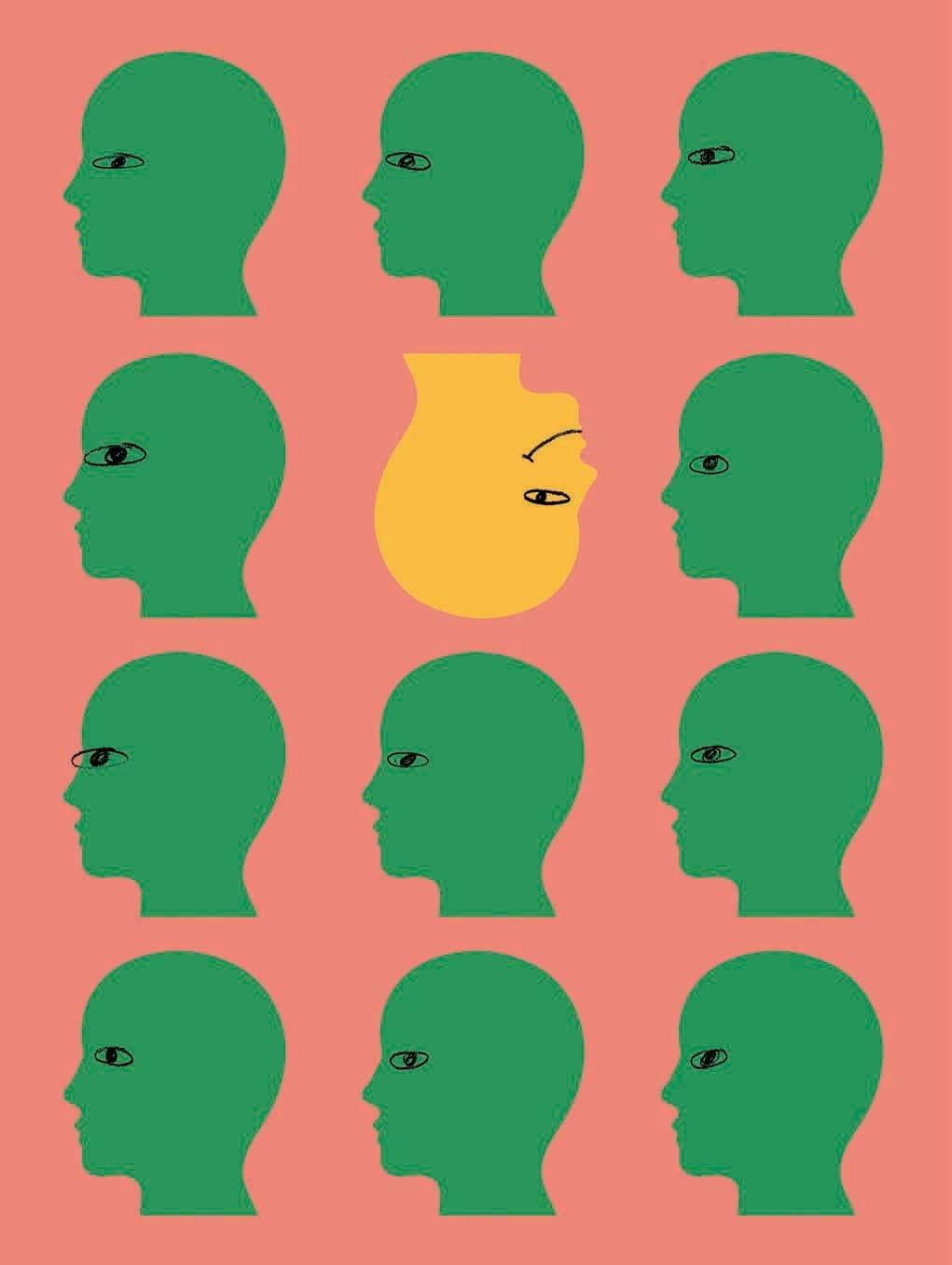
My childhood was, by most definitions, pretty strange. I grew up a Russian Jewish immigrant in Midland, Texas, in a region whose biggest claims to fame are being the onetime home of George W. Bush and the inspiration for Friday Night Lights. In preschool, I got in trouble for not praying before eating my snack; later, I didn’t know what this “Super Bowl” everyone kept talking about was. I felt hopelessly different from everyone else in our town.
Even after we moved to a Dallas suburb, I never encountered another Russian immigrant kid like me. I rode the bus alone. I spent almost every evening alone. I began talking to myself—a habit that has unfortunately stuck. Once, someone toilet-papered our house, and I had to explain to my parents that this is what American kids do to losers. Undeterred, my dad eagerly raked the toilet paper into a garbage bag and put it in my parents’ bathroom for future use. “Free toilet paper!” he said happily over dinner.
All I wanted to be was normal. I wanted to be as American as my classmates; I wanted a past that, when I explained it to people, compelled no one to ask “Why?” about any part of it. But with time, I’ve come to realize that there’s an upside to being different from everyone around you. In fact, a body of social-science research suggests that being an oddball or a social reject can spark remarkable creativity.
この記事は The Atlantic の April 2020 版に掲載されています。
7 日間の Magzter GOLD 無料トライアルを開始して、何千もの厳選されたプレミアム ストーリー、9,000 以上の雑誌や新聞にアクセスしてください。
すでに購読者です ? サインイン
この記事は The Atlantic の April 2020 版に掲載されています。
7 日間の Magzter GOLD 無料トライアルを開始して、何千もの厳選されたプレミアム ストーリー、9,000 以上の雑誌や新聞にアクセスしてください。
すでに購読者です? サインイン

JOE ROGAN IS THE MAINSTREAM MEDIA NOW
What happens when the outsiders seize the microphone?

MARAUDING NATION
In Trumps second term, the U.S. could become a global bully.

BOLEY RIDES AGAIN
America’s oldest Black rodeo is back.

THE GENDER WAR IS HERE
What women learned in 2024

THE END OF DEMOCRATIC DELUSIONS
The Trump Reaction and what comes next

The Longevity Revolution
We need to radically rethink what it means to be old.

Bob Dylan's Carnival Act
His identity was a performance. His writing was sleight of hand. He bamboozled his own audience.

I'm a Pizza Sicko
My quest to make the perfect pie

What Happens When You Lose Your Country?
In 1893, a U.S.-backed coup destroyed Hawai'i's sovereign government. Some Hawaiians want their nation back.

The Fraudulent Science of Success
Business schools are in the grips of a scandal that threatens to undermine their most influential research-and the credibility of an entire field.